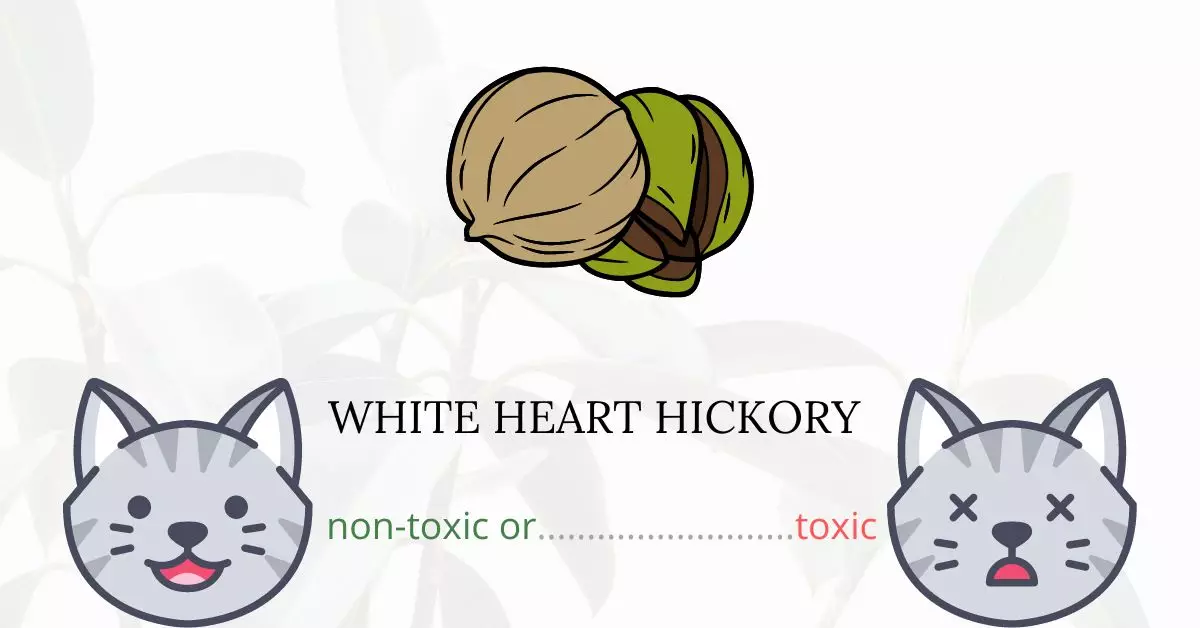No, the white heart hickory is not toxic to cats. It’s reassuring to know that the American Society for the Prevention of Cruelty to Animals (ASPCA) lists this plant as non-toxic for felines.
This article is the result of collaboration with a team of experienced DVMs (doctors of veterinary medicine). Their expert insights, combined with thorough research from high-authority websites such as the ASPCA and PetMD, ensure we provide you with accurate and current information about the potential risks various plants, including White Heart Hickory, pose to cats.
If you have this tree at home, your cats can comfortably interact with it without any associated risks. They can safely touch, play, or even bite any part of this plant without harm.
Can Cats Eat White Heart Hickory?
If your cat accidentally nibbled on a part of this hickory species, you do not have to panic as it will not cause harm. Although there are no toxic properties found in the white heart hickory, eating too much of this plant can cause cats to have indigestion.
Carnivorous species like cats are not capable of digesting plant materials. Because of this, they tend to experience vomiting and diarrhea after overeating plants.
Plant care products used on a plant can also affect your cats’ well-being. Since some products have toxic properties, they may poison your cats if they accidentally ingested a contaminated plant.
What is White Heart Hickory?
The Carya tomentosa tree belongs to the Juglandaceae, or walnut family, and is also known as the mockernut hickory, white hickory, whiteheart hickory, hognut, and bull nut.
The most prevalent of the hickories, white heart hickory is widespread in the eastern US and has a long lifespan, occasionally growing to be 500 years old. A significant portion of the wood from this straight-growing hickory is used to make goods that need to be strong, hardy, and flexible.
The white heart hickory is a 50–60 foot tree that, with good soil, can grow as high as 100 feet. With shallow furrows and narrow ridges forming a net-like pattern, its dark bark is rough and thin. Not like Shagbark hickory (Carya ovata), it does not peel. If the tree has not experienced drought, the pinnately compound, deciduous leaves become bright, golden-yellow. A big, thick shell surrounds tiny, hardly edible nuts.
Keeping Cats Away From White Heart Hickory
Cats hate prickly or thorny surfaces. They like walking on smooth ground. Your cats won’t enjoy walking on the soil as much if you cover it with a layer of mulch.
Layering pebbles on top of your soil is an additional choice that offers two benefits. It will add a nice touch while preventing loose soil from flying in all directions. Just be careful not to cover the soil with too many pebbles so the water can still go through the soil.
Training your cats is the best way to keep them away from your plants. Just like dogs, cats can be trained. Time, patience, and consistency are all you need. You can teach your cats to stay away from the plants and to behave differently by providing them with the right incentives and rewards.
Plants to Avoid For Your Cats
If you are a cat owner and unsure if the plants growing in your yard are harmful to your cats, check out this list of toxic plants for cats. You can also check our list of non-toxic plants for cats.





